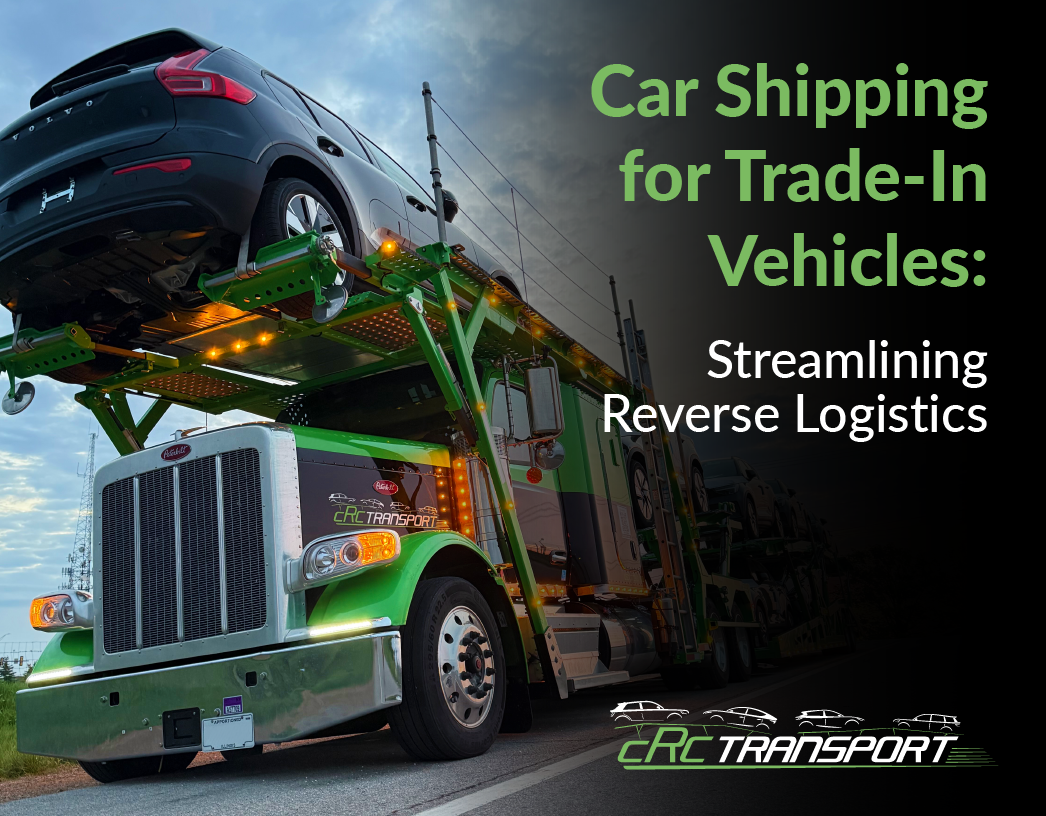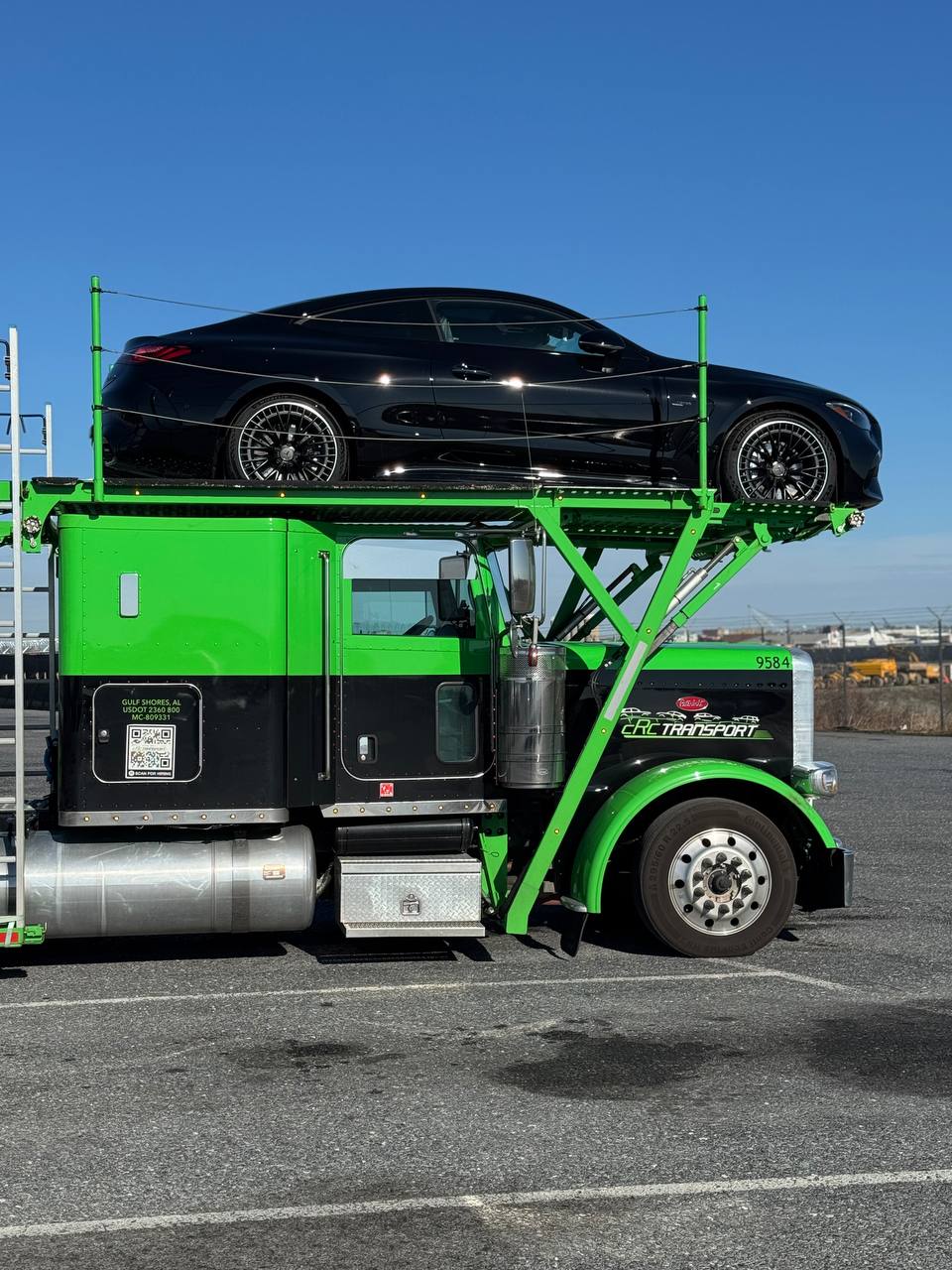Car Shipping for Trade-In Vehicles: Streamlining Reverse Logistics

In today’s vehicle market, trade-in programs have become a core component of the sales strategy for dealerships nationwide. Whether you’re a dealer accepting cars from customers in another state or a consumer trading in your vehicle remotely, the challenge lies in efficient shipping vehicles from their origin point back to your facility.
This process – called reverse logistics – demands reliability, speed, and cost-efficiency. Working with a professional transport company allows dealerships to streamline the return of trade-in units without disrupting their core operations. And with today’s cross-country buying trends, having a scalable, nationwide car transporting service is no longer optional – it’s essential.
Why Car Shipping Matters for Trade-In Vehicles
Trade-ins are not just about valuation and negotiation – they’re also about moving a car across the country as quickly and safely as possible. Whether the trade-in is coming from a private buyer, another dealership, or a digital auction, each delay adds to overhead costs and affects turnaround time.
Here’s how professional transport vehicle service supports trade-in logistics:
- Ensures timely pickups of trade-in vehicles
- Provides vehicle condition protection during transport
- Optimizes routing to reduce costs and delivery times
- Integrates with dealership scheduling and CRM systems
This level of support makes it easier for dealers to ship a car cross country with confidence, knowing vehicles will arrive intact and on time.
Common Scenarios for Trade-In Vehicle Shipping
Reverse logistics for trade-ins isn’t one-size-fits-all. Here are a few typical scenarios:
1. Trade-Ins from Out-of-State Customers
A customer in California buys a car from a Florida dealership and trades in their old vehicle. That trade-in needs to be picked up in California and returned via car shipping Florida services. In such cases, reverse logistics becomes as important as the original sale.
2. Dealer-to-Dealer Trade-Ins
Often, dealers coordinate trades of used inventory to match local market demand. Efficient ship vehicle cross country services ensure the traded cars arrive quickly and can be prepped for resale without delay.
3. Online Trade-In Programs
With the growth of digital retailing, many dealerships now offer instant online trade-in valuations. When the deal closes, the dealership must ship a car cross country back to their location, often through open transport carriers. The right transport company ensures a seamless customer experience.
Choosing the Right Transport Company for Trade-Ins
Not all transport vehicle services are created equal – especially when trade-ins are involved. The ideal partner for reverse logistics should offer:
- Nationwide coverage for shipping vehicles
- Real-time tracking and digital updates
- Open carrier options for affordability
- Strong insurance coverage
- Flexible scheduling for pickup and delivery
A reliable car transporting service can minimize downtime and streamline your trade-in process, especially during high-volume sales periods or seasonal spikes.
How to Ship a Car to Another State: Best Practices
Shipping a trade-in vehicle from one state to another requires planning. Here’s a quick checklist on how to ship a car to another state effectively:
- Get a Quote Early – Choose a transport company with transparent pricing models. Reverse logistics often involves multiple vehicles, so bulk rates are a plus.
- Prepare the Vehicle – Ensure the trade-in is cleaned, documented, and pre-inspected before handing it off to the transport vehicle service.
- Schedule in Advance – For busy routes like car shipping Florida, it’s best to book at least a week ahead to avoid delays.
- Track in Real-Time – Choose providers with GPS tracking for full visibility throughout the route.
- Partner with Professionals – Look for companies specializing in moving cars across the country for B2B operations.
Cost Considerations for Trade-In Vehicle Transport
Reverse logistics shouldn’t eat into your margins. Fortunately, many car transporting services offer volume discounts and dealer-specific pricing models. The cost of shipping vehicles for trade-ins depends on:
- Distance (e.g. Florida car shipping to Midwest vs. coast-to-coast)
- Type of carrier (open vs. enclosed)
- Time of year (peak season impacts cost)
- Urgency (expedited shipments cost more)
Using a trusted transport company gives you access to negotiated rates, faster dispatch times, and fewer surprises.
Why Speed Matters in Reverse Logistics
Every day a trade-in sits idle is a cost – whether from depreciation, insurance, or lost sales opportunities. A streamlined car transporting service helps dealerships:
- Reduce average inventory age
- Improve reconditioning cycles
- Support faster resale and higher turn rates
This is especially crucial for dealers running tight inventory or managing multiple locations where shipping vehicles in and out must be tightly coordinated.
Final Thoughts: Make Trade-In Logistics a Competitive Advantage
As trade-ins become more digital and geographically diverse, efficient reverse logistics are the key to maintaining momentum. A trusted transport company can help you handle everything from how to ship a car to another state to managing daily loads of vehicles returning to your lots.
At CRC Transport, we help dealers simplify their operations with reliable car transporting service tailored to high-volume trade-in logistics. From car shipping Florida to cross-country return routes, we deliver vehicles on time, on budget, and with care – so your dealership can focus on sales, not shipping.
Reliable Experts in Automotive Transportation





